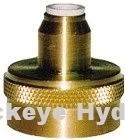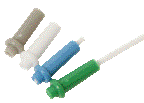johnlvs2run
Well-Known Member
Most people have potable tap water and brew with it. I take it that you think that's a bad idea.
Yes I definitely feel that's a bad idea.
I see you edited you post sometime after I quoted it.
I can see adding a balance of minerals to RO permeate if desired,
but not the contaminants contained in water from the tap. A lot of people do though and that's a personal choice.
Happy now.
I reserve the right to edit my posts.








































![Craft A Brew - Safale S-04 Dry Yeast - Fermentis - English Ale Dry Yeast - For English and American Ales and Hard Apple Ciders - Ingredients for Home Brewing - Beer Making Supplies - [1 Pack]](https://m.media-amazon.com/images/I/41fVGNh6JfL._SL500_.jpg)



















